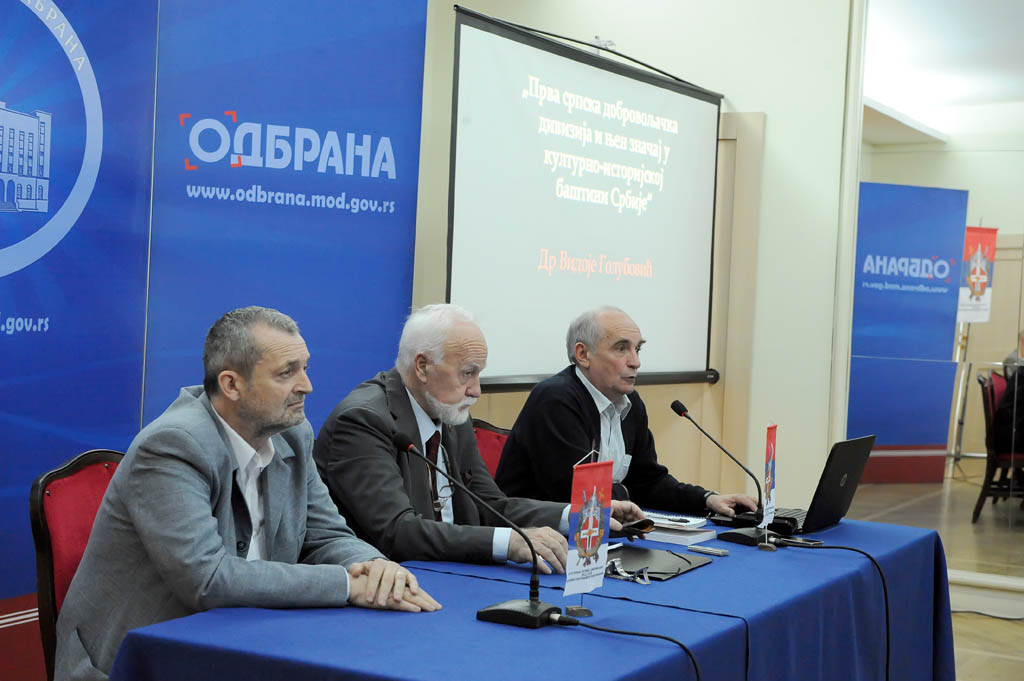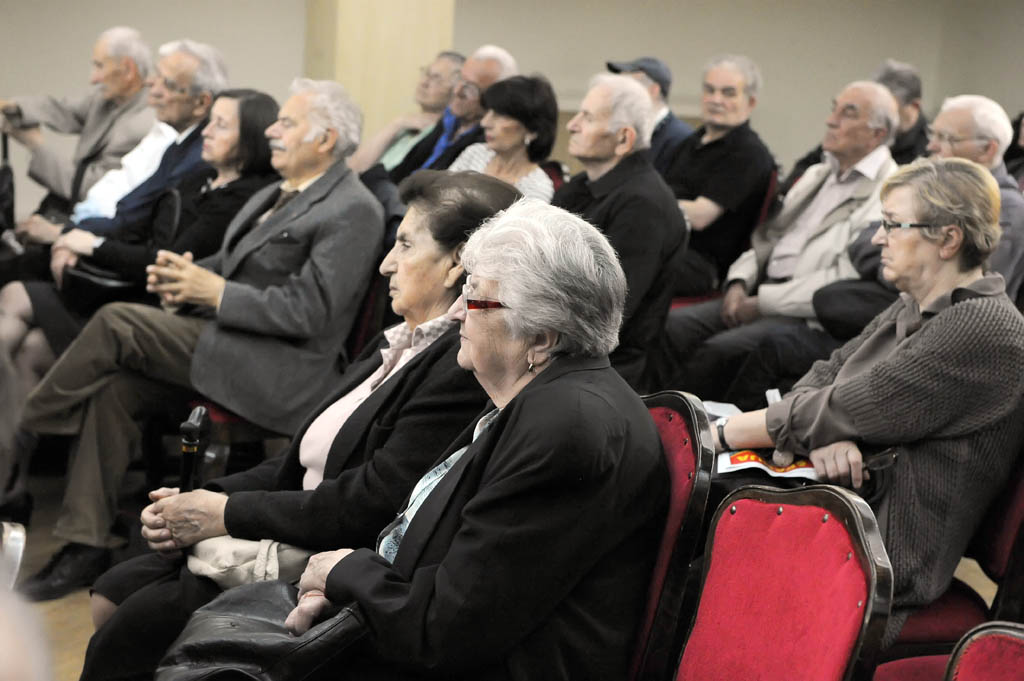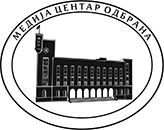08.04.2016
Panel Discussion "First Serbian Volunteer Division"
 In the framework of marking the anniversary of the First World War, a panel discussion entitled "The First Serbian Volunteer Division", organized by the Association of 1912-1918 War Volunteers, their descendants and admirers, has been held in the Atrium of the Central Military Club today.
In the framework of marking the anniversary of the First World War, a panel discussion entitled "The First Serbian Volunteer Division", organized by the Association of 1912-1918 War Volunteers, their descendants and admirers, has been held in the Atrium of the Central Military Club today.The participants were told about the First Serbian Volunteer Division by the President of the War Volunteers Association, Dr. Vidoje Golubovic, Prof. Nikola Popovic, a member of the Academy of Sciences and Arts of the Republic of Serbia, and Assistant Province Secretary for cultural heritage and public collections Milan Micic, PhD.
Speaking about the 100th anniversary of the formation of the First Serbian Volunteer Division, Dr. Golubovic said that according to the documents which he got hold of he believes that this division deserves to be a part of the cultural and historical heritage of our country.
 Academician Popovic, who is one of the best experts on the history of the volunteers in these parts, reminded the audience of the beginning of the formation of the volunteer movement, pointing out that it meant basically the resistance to Austria-Hungary.
Academician Popovic, who is one of the best experts on the history of the volunteers in these parts, reminded the audience of the beginning of the formation of the volunteer movement, pointing out that it meant basically the resistance to Austria-Hungary.Although, as he mentions, the volunteer movement appeared in many countries, the widest scope was achieved by that in Russia, as its core consisted of the Austro-Hungarian prisoners of Serbian nationality, mostly from the territory of today's Vojvodina and Bosnia, which was then part of the Austro-Hungarian Empire.
The Academician noted that on 11th February 1916, the First Volunteer Division was formed in the Russian city of Odessa, and that it was led by Colonel Stevan Hadzic. According to him, the division entered the battle as early as on the 16th April, as part of the Russian Corps which was operating in Dobrudza. For the 36 days of fighting, as they were on the front line, as many as 53 per cent of 15,988 officers and soldiers were killed or disappeared.
According to Dr. Micic, participation of Serbian volunteers in the First World War directly touched upon one of the most important themes in the history of the Serbian people in the First World War from the territory of today's Vojvodina.
 He recalled that Austria-Hungary declared war on the whole Serbian nation while the cruelty of its army in the first days of the conflict affected mostly the Serbian population in the territory of Vojvodina and Bosnia. This is exactly what made the soldiers of Serbian nationality, who were in the Austro-Hungarian army, to surrender in the conflict with the Russian army and become "easy prisoners", and they will be the ones, as Micic says, who will be the initiators and core of the volunteer movement in Russia.
He recalled that Austria-Hungary declared war on the whole Serbian nation while the cruelty of its army in the first days of the conflict affected mostly the Serbian population in the territory of Vojvodina and Bosnia. This is exactly what made the soldiers of Serbian nationality, who were in the Austro-Hungarian army, to surrender in the conflict with the Russian army and become "easy prisoners", and they will be the ones, as Micic says, who will be the initiators and core of the volunteer movement in Russia.By enlistment as volunteers, he recalled, these soldiers have become traitors in the eyes of Austro-Hungarians, and they were threatened the death penalty, all their property was confiscated and the families interned in camps from which most often they never returned.
He pointed out that a third of the Serbian volunteers in the First Serbian Volunteer Division who fought in Dobrudza was made up of soldiers from the area of Banat, Backa, Srem, Bosnia, Herzegovina, Lika, Banija, Kordun and Dalmatia.

